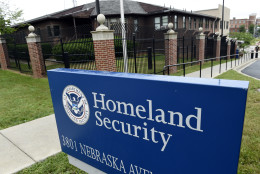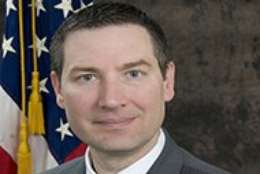Reporter's Notebook
-
Rep. Mike McCaul (R-Texas) is getting closer to introducing a bill to create a stand-alone cybersecurity agency in DHS, while the agency also is conducting an internal review of current capabilities and future needs.
May 01, 2017 -
The General Services Administration’s $50 billion Enterprise Infrastructure Solutions (EIS) telecommunications contract is back under a pre-award protest while DHS’s agile contract known as FLASH faces 12 complaints.
May 01, 2017 -
Alfred Rivera, DISA’s director of the Development and Business Center, said the agency is moving toward multi-factor authentication, including biometrics and other “patterns of life” type of technologies.
April 24, 2017 -
The Government Accountability Office brought in 13 experts on federal technology last fall to have a frank discussion about what’s working and what’s not with the Federal IT Acquisition Reform Act.
April 24, 2017 -
The General Services Administration and the Homeland Security Department held an industry day to explain how the new process under the Continuous Diagnostics and Mitigation (CDM) program would work.
April 24, 2017 -
The nation’s number-two military officer added himself to the list of Defense officials who’ve expressed unease about taking funds away from the State Department as one way to pay for a $54 billion plus-up in military spending.
April 18, 2017 -
For the third year in a row, members of the House and Senate are trying to undo an unpopular 2014 DoD policy change that drastically cut reimbursement rates for military members and civilians on long-term travel.
April 18, 2017 -
After years of work inventorying its legacy business information technology systems and building more modern ones to replace them, the Army says it has an aggressive plan in place to cut its number of business IT systems in half.
April 18, 2017 -
The Office of Management and Budget’s ambitious plan to reorganize and restructure the government is asking agencies to consider ideas such as shared services, insourcing and outsourcing and all-but-mandating the use of existing multiple-award contracts. These concepts have real potential to change and transform agencies and their mission areas.
April 17, 2017 -
The Trump administration’s new Office of American Innovation wants to bring in private-sector experts to improve federal agency performance. It should heed the lessons of an Obama administration initiative that tried to do the same thing.
April 17, 2017 -
Kevin Youel Page, the deputy commissioner of the Federal Acquisition Service at GSA, said schedule holders participating in the Transactional Data Reporting program will not have to report Commercial Services Practices or Price Reduction Clause information.
April 17, 2017 -
Multiple sources say Chris Liddell, the assistant to the president for strategic initiatives, and Matt Lira, the special assistant to the president for innovation policy and initiatives, brought in CIOs one after another to get a handle on priorities, challenges and opportunities in each agency and governmentwide.
April 10, 2017 -
FDA Chief Information Officer Todd Simpson has developed an IT cost allocation model so mission areas can pay for what they use, instead of just a flat fee.
April 10, 2017 -
HHS CIO Beth Killoran said moving 400,000 telecommunications inventory items to the new Enterprise Infrastructure Solutions (EIS) contract in two-and-a-half years may not be feasible.
April 04, 2017 -
In the American Innovation and Competitiveness Act, Congress told NIST to take a deep dive into how agencies understand and use the special publications and Federal Information Processing Standards for cybersecurity that it produces.
April 04, 2017














